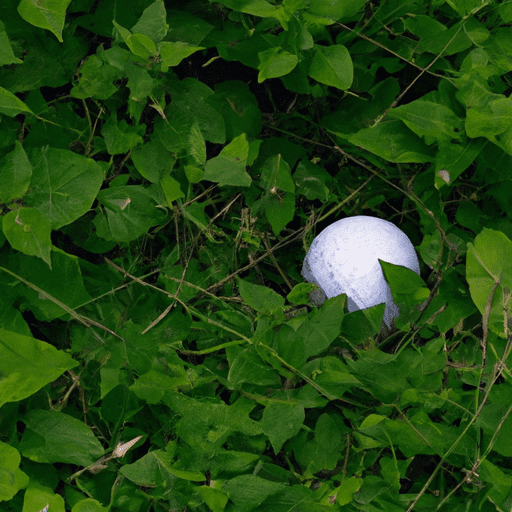Imagine yourself standing on a lush green golf course, a gentle breeze blowing through your hair as you prepare to take your shot. Suddenly, your ball disappears into the thick underbrush, leaving you perplexed and frustrated. Fear not, dear golfer, for this article is here to shed light on the enigma that is the Lost Ball Rule. With a dash of golf rules and etiquette, we will unravel this mystery and equip you with the knowledge needed to navigate the fairways with confidence and composure. So grab your clubs and join us on a journey to better understand this perplexing rule.
Understanding the Lost Ball Rule
Overview of the Lost Ball Rule
The Lost Ball Rule is an important aspect of golf that can often cause confusion among players. Essentially, if you hit a ball and cannot find it within the boundaries of a golf course, it is considered “lost.” This rule helps maintain the integrity and fairness of the game by penalizing players for wayward shots and providing guidelines for how to proceed when a ball goes missing.
Applying the Lost Ball Rule
When a ball is determined to be lost, several steps need to be taken to properly apply the rule. First, you must assess whether the ball is indeed lost and not just temporarily misplaced. Once it is confirmed as a lost ball, a penalty is typically incurred, depending on the format of play. In stroke play, a player incurs a one-shot penalty and must proceed to the spot from where the last shot was played. In match play, the player loses the hole and must move on to the next one.
Determining a Lost Ball
Determining whether a ball is lost can sometimes be challenging, especially when faced with thick rough, hazards, or dense foliage. According to the Rules of Golf, a ball is considered lost if it is not found within three minutes of the search starting. It's crucial to keep track of this time and have good communication with fellow players to ensure fairness and accuracy when making this determination.
Penalties for a Lost Ball
As mentioned earlier, in stroke play, a player incurs a one-shot penalty when their ball is deemed lost. This means that the score for that particular hole will include an additional stroke. In match play, losing a hole due to a lost ball can have a significant impact on the outcome of the match. Understanding the penalties associated with a lost ball is essential to maintaining fair competition and adhering to the rules of the game.
Options Available After a Lost Ball
After a ball is lost, players have a few options to proceed. Firstly, they can re-hit from the original spot with a penalty stroke, trying to replicate the previous shot. Alternatively, they can choose to “play as near as possible to the spot where the original ball was last played” (as stated in the Rules of Golf), adding a penalty stroke to their score. Lastly, players also have the option to proceed under a different rule, such as taking a drop or using a provisional ball, if applicable.
Common Misconceptions about the Lost Ball Rule
Misunderstandings and misconceptions about the Lost Ball Rule are relatively common among golfers. One common misconception is that hitting a provisional ball automatically eliminates the penalty stroke if the original ball is not found. However, the provisional ball is only considered a backup in case the original ball is lost.
Another common misconception is that players are allowed an unlimited amount of time to search for a lost ball. In reality, the three-minute time limit is strictly enforced to prevent undue delay and maintain the pace of play.
Exceptions to the Lost Ball Rule
While the Lost Ball Rule is generally straightforward, there are a few exceptions that golfers should be aware of. For example, in some cases, if a ball is lost due to an outside agency, such as a spectator or another player, there may be special provisions that apply. Additionally, local rules implemented by specific golf courses can also dictate how lost balls are handled, so it's always important to familiarize yourself with any course-specific rules before playing.
Procedures for a Lost Ball in Match Play
In match play, a lost ball can have significant implications, as it often results in the loss of a hole. Therefore, it is crucial to understand the procedures for a lost ball in this format of play. When a ball is lost, the player must notify their opponent, declare it as lost, and move on to the next hole. It's important to communicate clearly and abide by the rules to maintain fairness and sportsmanship during a match.
Strategies to Minimize Lost Balls
Although losing a ball during a round of golf can be frustrating, there are several strategies you can employ to minimize the likelihood of it happening. Firstly, take note of any hazards or areas on the golf course where balls are likely to be lost, such as thick rough or water hazards, and do your best to avoid them. Additionally, using brightly colored golf balls can make them easier to spot, especially in dense vegetation. Lastly, playing within your skill level and not attempting risky shots can significantly reduce the chances of losing a ball.
Tips for Handling a Lost Ball Situation
When faced with a lost ball situation, it's important to stay calm and navigate the circumstances with confidence. Utilize your teammates' help in the search, as extra pairs of eyes can increase the chances of finding the lost ball within the time limit. Additionally, be mindful of the three-minute time restriction and adhere to it strictly. Lastly, it's crucial to maintain a positive attitude and remember that losing a ball is a common occurrence in golf. Stay focused, re-focus on the next shot, and continue enjoying the game.
Understanding and properly applying the Lost Ball Rule is essential for any golfer. By familiarizing yourself with the rules, penalties, and options available after a lost ball, you can navigate these situations with ease and minimize the impact on your score. Remember, golf is a game of skill, patience, and adaptation, and handling a lost ball situation with grace and sportsmanship will contribute to your overall enjoyment of the game.






